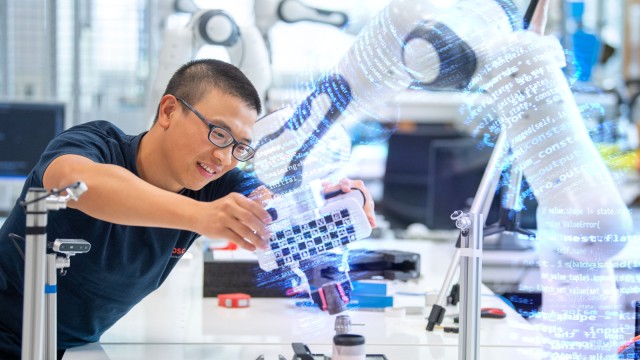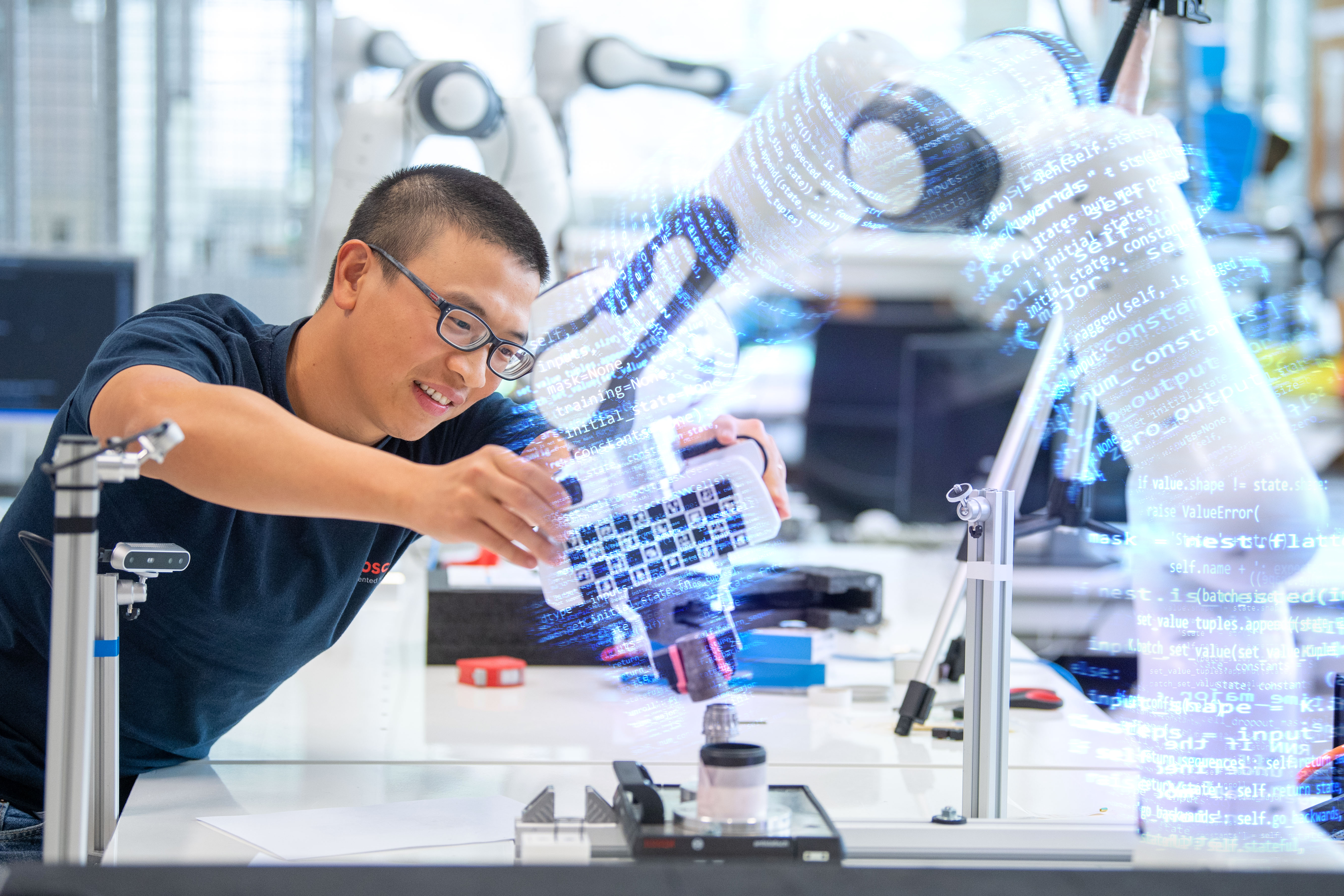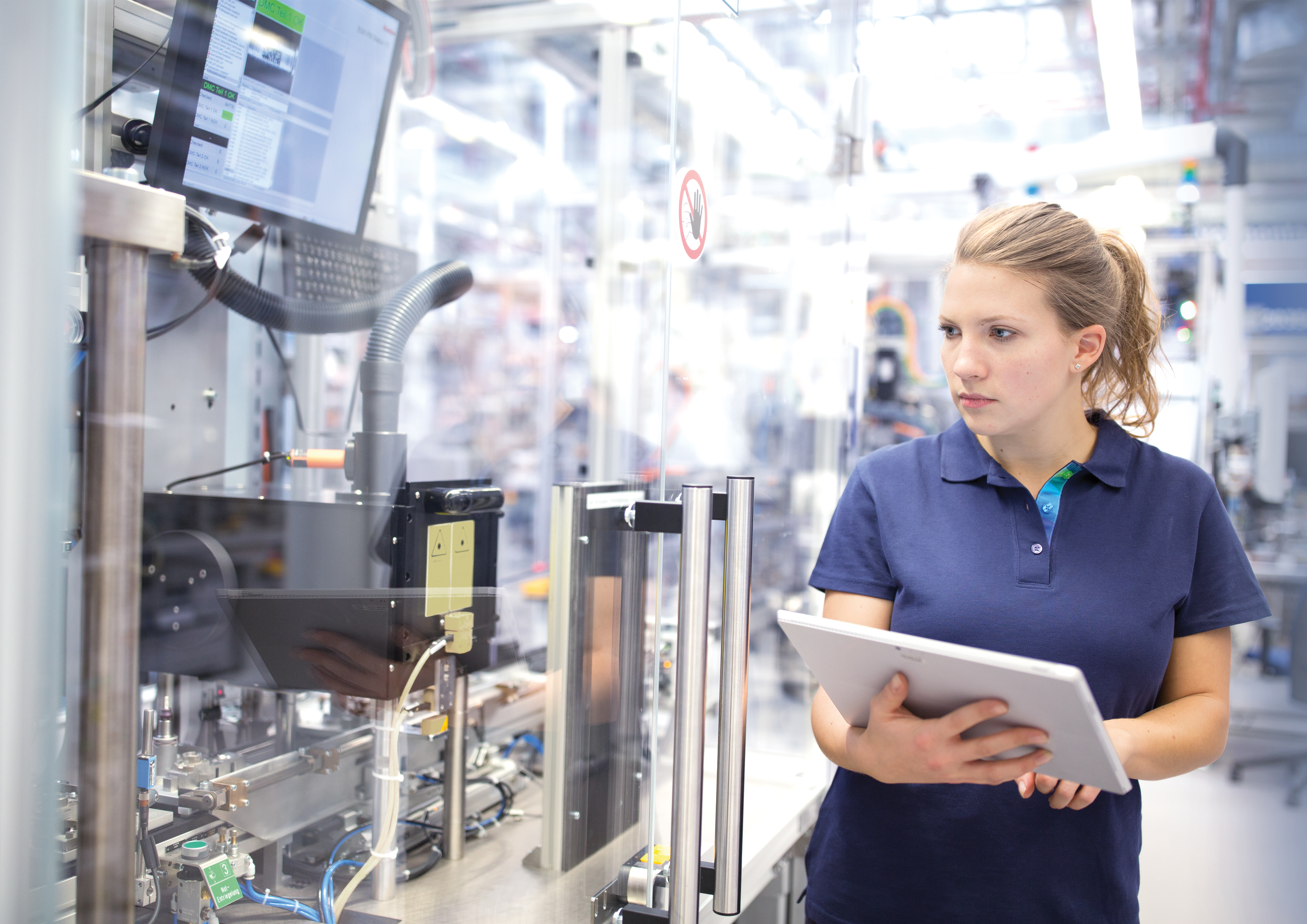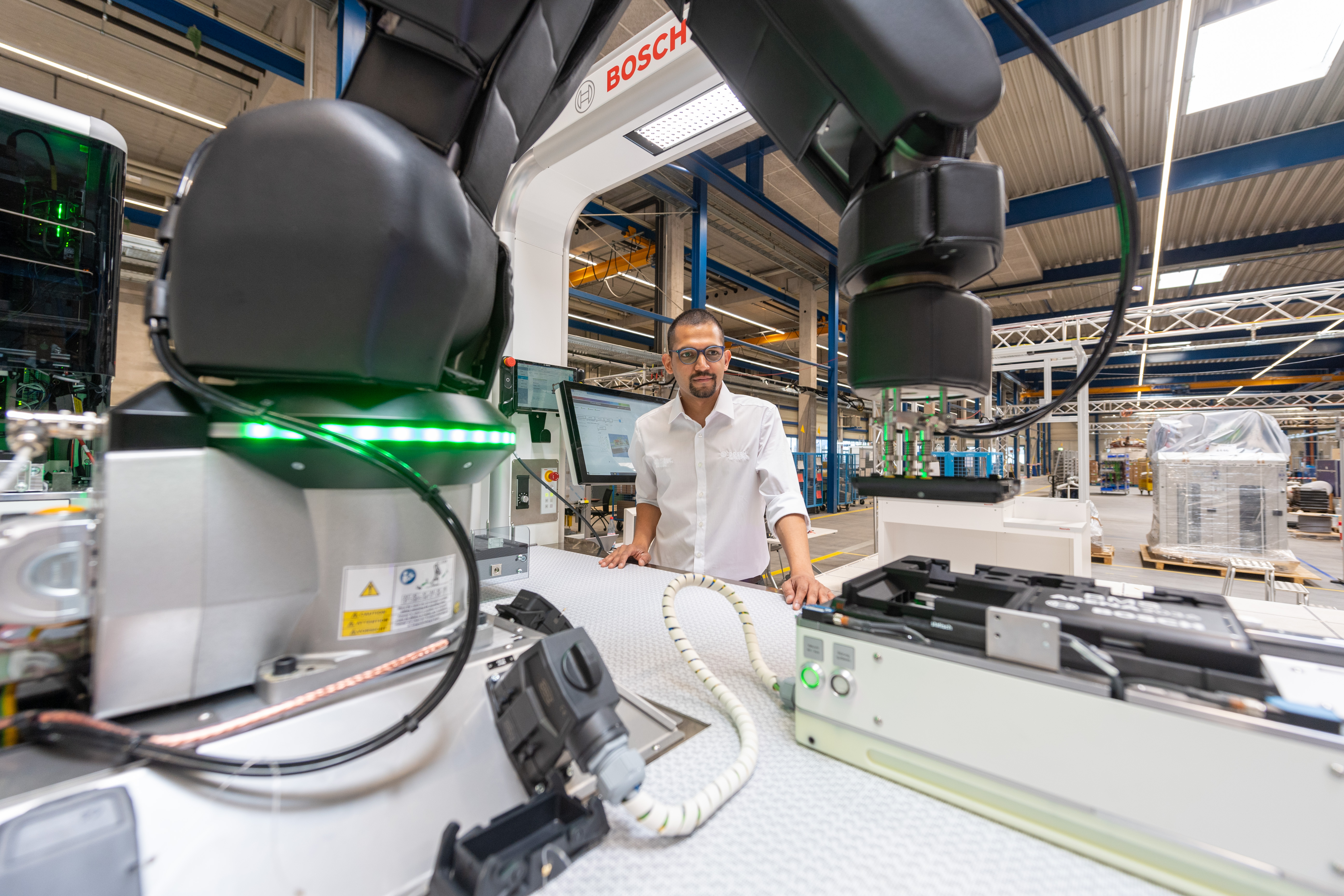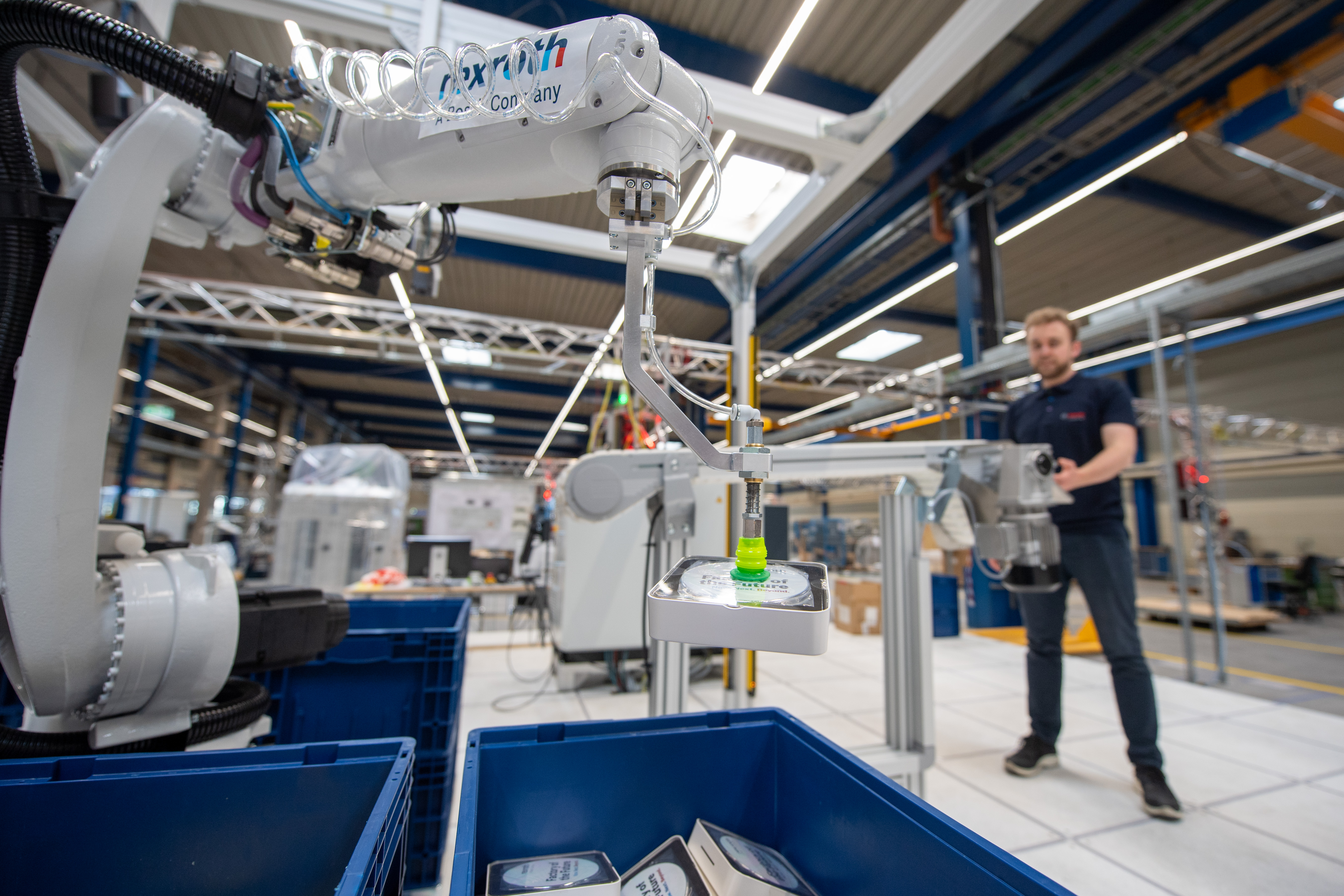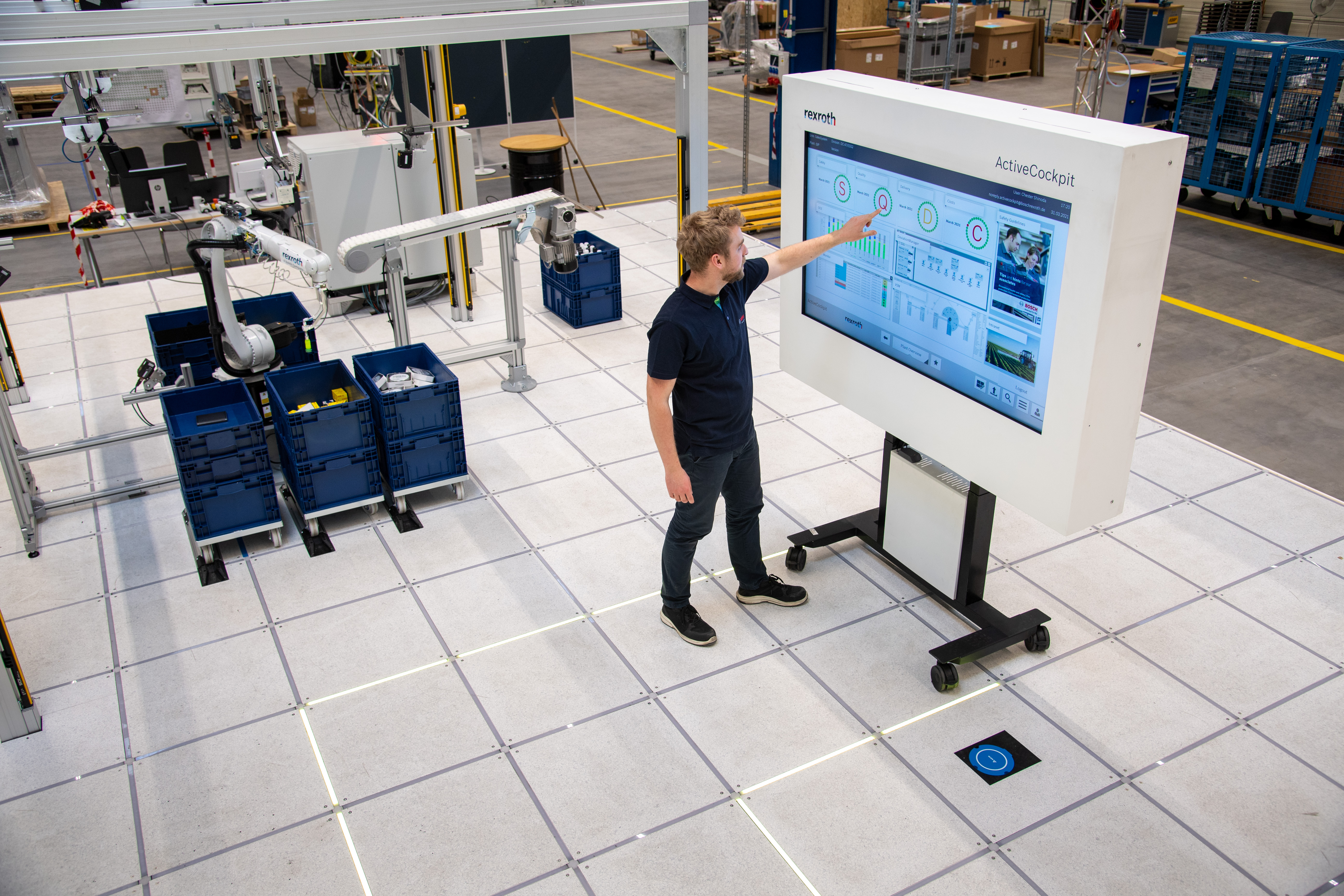Stuttgart, Germany – Industry 4.0 is coming of age. What began at Hannover Messe in 2011 as a “pioneering German project” has now gained global traction – thanks in part to groundbreaking work by Bosch. The aim is for connected manufacturing to optimize itself automatically, making it economical to produce customized products in batch sizes even as small as one. Since 2012, Bosch has been systematically leading factories – both its own and those of its customers – into this new industrial age. This commitment is paying off: over the past ten years, the company has generated more than four billion euros in sales with Industry 4.0. In 2020 alone, Bosch generated sales of more than 700 million euros with connected manufacturing solutions. “We recognized the potential of Industry 4.0 early on and are pioneers in this field. Now we’re reaping the rewards,” says Rolf Najork, the member of the Bosch board of management, responsible for industrial technology. The use of Industry 4.0 in the company’s own plants is also paying off. Bosch is combining intelligent software for production control, monitoring, and logistics planning into a manufacturing platform of its own. This connects to a larger database that simplifies and improves tasks such as AI analyses for fault detection. The roll-out of the new Bosch manufacturing and logistics platform will start at the end of 2021. “We offer our roughly 240 plants a standardized ‘Industry 4.0 toolbox,’ which can be expanded and deployed as needed,” Najork says. Bosch believes this will save it almost one billion euros over the next five years, following an investment of around 400 million euros. At the digital Hannover Messe (April 12 –16, 2021), Bosch will chart the development of “ten years of Industry 4.0” and showcase the factory of the future: technologically flexible, intelligently connected, ecologically sustainable – and economically successful.
All press releases concerning "10 years of Industry 4.0 at Bosch" are available online in the press kit "Bosch at the digital Hannover Messe 2021".
About Bosch
The Bosch Group is a leading global supplier of technology and services. It employs roughly 412,000 associates worldwide (as of December 31, 2025). According to preliminary figures, the company generated sales of 91 billion euros in 2025. Its operations are divided into four business sectors: Mobility, Industrial Technology, Consumer Goods, and Energy and Building Technology. With its business activities, the company aims to use technology to help shape universal trends such as automation, electrification, digitalization, connectivity, and an orientation to sustainability. In this context, Bosch’s broad diversification across regions and industries strengthens its innovativeness and robustness. Bosch uses its proven expertise in sensor technology, software, and services to offer customers cross-domain solutions from a single source. It also applies its expertise in connectivity and artificial intelligence in order to develop and manufacture user-friendly, sustainable products. With technology that is “Invented for life,” Bosch wants to help improve quality of life and conserve natural resources. The Bosch Group comprises Robert Bosch GmbH and its roughly 490 subsidiary and regional companies in over 60 countries. Including sales and service partners, Bosch’s global manufacturing, engineering, and sales network covers nearly every country in the world. Bosch’s innovative strength is key to the company’s further development. At 136 locations across the globe, Bosch employs some 82,000 associates in research and development.
The company was set up in Stuttgart in 1886 by Robert Bosch (1861-1942) as “Workshop for Precision Mechanics and Electrical Engineering.” The special ownership structure of Robert Bosch GmbH guarantees the entrepreneurial freedom of the Bosch Group, making it possible for the company to plan over the long term and to undertake significant upfront investments in the safeguarding of its future. Ninety-four percent of the share capital of Robert Bosch GmbH is held by Robert Bosch Stiftung GmbH, a limited liability company with a charitable purpose. The remaining shares are held by Robert Bosch GmbH and by a company owned by the Bosch family. The majority of voting rights are held by Robert Bosch Industrietreuhand KG. It is entrusted with the task of safeguarding the company’s long-term existence and in particular its financial independence – in line with the mission handed down in the will of the company’s founder, Robert Bosch.
Additional information is available online at www.bosch.com, www.bosch-press.com.
